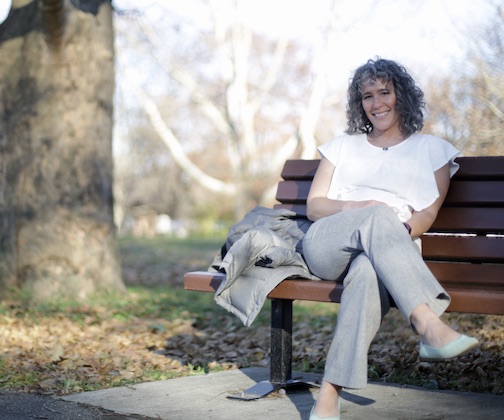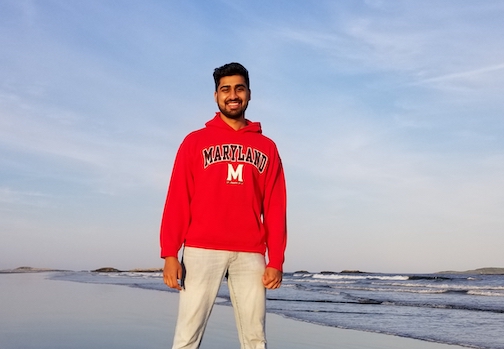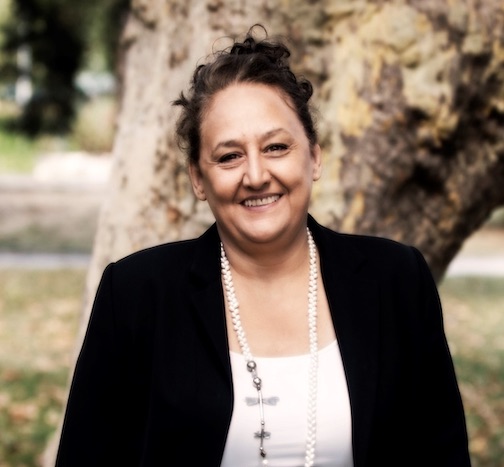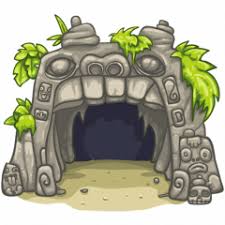Tell us about your background and what got you interested in medicine?
I'm the eldest child of Iranian immigrants who strongly encouraged me to become a doctor (the joke is, as an Iranian-American, you can be a doctor, engineer, or....failure). At 6, I wanted to be a dancer and my parents stopped my ballet classes soon thereafter. At 7, I wanted to be a field biologist working in a zoo, and then my pets disappeared. By 8, I figured out to say I wanted to be a doctor, and it stuck. It turns out I love science, anthropology, and being of service, so medicine is actually a good fit for me. It's also an excellent ticket to working anywhere in the world.
Tell us about your practice and the neighborhood/different locations you work in.
After residency in Boston, I practiced at Seattle's county hospital, Harborview, and predominantly did women's health for refugees, immigrants, and "urban vulnerables." After that, I was at the Country Doctor Community Health Clinics as a primary care fill-in doctor (in the Capitol Hill and Central Districts of Seattle) for colleagues who were sick, on vacation, or on hospital duty. I've also practiced medicine as a volunteer in short stints in a variety of countries. Since moving to Morocco in fall of 2019, I've been doing telemedicine, but hope to return to my community health clinic since returning to Seattle this summer once I figure out my childcare situation.
How has your routine changed since the pandemic?
I'm a single mother of a wonderful, very sociable 8 year old girl. Since mid-March, she has been home with me 100% of the time vs. the 40 hours she is usually at school and after-school activities. Because of coordinating remote schooling for her (3 hours a day of synchronous video chats plus an hour of independent work) and getting far less, uninterrupted thinking time, my work productivity has suffered. I'm typically able to do 40% of my previous level of work, but I am a bit of a workaholic, so it's probably not such a bad thing. Also, I realize what a privileged position I'm in to be able to shelter in place for childcare and work. I focus on my gratitude every time I feel like complaining. I've been working mostly from home since 2006, so the pandemic's shelter in place orders haven't affected my ability to work (except for not going into the clinic). However, I'm a focused, immersed in my thoughts kind of person who dislikes interruptions, so having an extroverted kid at home has been tough for my concentration and deep creativity. I do read COVID-19 science and health studies daily for 3-4 hours, so that's a new twist to my routine.
How does trust play a role in your daily routine, especially in the current Covid atmosphere?
I'm not a naturally trusting person in general, so I operate under the worst case assumption that every person I see could be infected with SARS-CoV-2 and protect myself and my child accordingly. So far, we see people only outdoors and masked (while that's possible during a Seattle summer), and the riskiest thing I do is grocery shopping. I think that will change in the fall as I decide how to educate my kid and give her social opportunities. The mental health effects of severe sheltering in place are real for both of us and we've experienced them under draconian lockdown in Morocco for 3 months, so we will have to balance mental health needs with infectious disease prevention.
What do you wish people knew about what you experience, in your field of health?
There are many unknowns with this pandemic as there are with any new pandemic. Science will ultimately prevail, but the interim stress and anxiety can be disabling in the meantime. I remember when there was so little we could do for our HIV/AIDS patients and how heartbreaking it was to watch them die. Now, while we still don't have an HIV vaccine, we have effective therapies that allow them to live normal lives and to treat HIV as if it were a chronic disease like diabetes. Our current state with COVID-19 is rapidly evolving. It's normal to be afraid, but try not to give into anxiety. Anxiety makes everything worse and is not useful in this chronic state of threat. Your first priority is to take care of your health and well-being. This includes physical, mental, spiritual, occupational/financial, social, and environmental components. Do your best to understand what you need to be healthy and well first, and attend to these basic needs. Then, look out for others. The rest is less important. Of course, if you're in a position to dissect your needs and systematically work through them, you're probably in a privileged position--you probably don't have to think about the roof over your head, what you will eat, whether you will have a job, and how you will access health care.
What is the best part of your day? The hardest?
Best part of my day is spending time in nature (generally walking/hiking) with my daughter. Hardest part of my day is when I think about all the things I'd like to be doing that I can no longer do (hug my friends and family, read a book for pleasure or achieve what I wish to get done in my work).
Will Covid-19 change your approach to your work going forward?
Right now, I'm underemployed and had to give up opportunities to work on the pandemic in Morocco since returning to Seattle. As a clinician, global health expert, health tech consultant, and professional science communicator (TED and TEDMED talks curator and host), I feel like I have the perfect skillset to be helpful during this pandemic. Yet, currently, I'm barely working clinically, not doing anything with COVID-19 other than some pro-bono projects (eg advising science content for TEDEd talks, crafting COVID-19 plans for nonprofits, and tweeting the best science every day; I'm @nassefi). It's frustrating. My core identity is as a helper and I don't feel maximally helpful now except in my immediate circles (dispensing medical advice, checking up on people, dispelling myths, etc). I'm sure that will change soon. This COVID-19 experience will be more of a marathon than a sprint.
What is the best life/career advice anyone has ever given you?
The people you work with are just as important as the content of your work. The corollary of this is that if you have great colleagues and a generally good mission, it doesn't matter exactly what kind of work you do. I would advise people not to fixate on defining highly specific career goals if you aren't a hyper-specialized kind of person. In fact, while I have some deep formalized training in certain fields, I'm a huge proponent of pursuing a generalist's education. It's ok to have many interests and hobbies, to feel like a perpetual amateur. In fact, I believe we need these synthetic, big picture, problem-solving people more than ever in our highly siloed world. I personally don't have a very defined or conventional career path, but I have studied science, medicine, public health, creative writing, intellectual storytelling, speaking, living on 5 continents, and foreign languages. I believe these intersectional skills have made me creative, resilient, strategic, and able to have a 30,000 foot view of the world. It remains to be determined what my next big job will be, but in the meantime, I always love my work (and it's never boring), and often feel fulfilled in my service to others. I'm working on more financial stability, though live beneath my means and gravitate toward minimalism for maximum freedom.
Can you recommend one easy, daily self-health practice for that can help people get through the day?
Self-care is crucial at any time, but particularly at a stressful time like war or pandemic. Personally, I walk outside every day. For others, it's about quieting their mind through meditation, or turning off their minds in a vigorous sport or manual hobby like gardening. I recommend you figure out how to connect deeply with your body and give your overactive mind a break, whatever activity that is. Try to do it daily and don't feel guilty if you can't.
I think achieving health is relatively simple in theory--eat well, move your body, sleep well, connect to your purpose, have love in your life, and minimize toxic stress. In practice, it's not always easy to do. In fact, most people struggle with one or more of these parts of life.
Is there anything else you’d like the public to know about how it feels to be a health practitioner in the middle of a global pandemic?
It's a privilege and sacrifice to be a health provider in a time of public health crisis. While there may be greater occupational risks, it's deeply meaningful to be a helper and a gift to have the skills to take care of others. Health practitioners are human beings just like everyone else. We struggle with the same challenges--e.g. childcare, unhealthy habits, stress, and self-sabotage just like others do. There is a really high rate of burnout among physicians (pre-COVID-19, we had the highest suicide rate; I can only imagine it's worse now). Treat us kindly and expect the same from us. If you don't trust your health care provider or have good communication with them, seek out another provider if you can. Similarly, everyone is fighting some battle you may know nothing about, so assume the best in others and try not to take it personally if you don't have the best interaction. Just as I assume everyone may be infectious with the novel coronavirus, I also try to treat everyone with kindness and empathy. Goodness is also contagious. It’s been pretty scary to be honest, but nothing I don’t think we can overcome. It’s going to take a concerted effort from all of us, and an interdependent way of thinking to make it through. Even though we are far part, I firmly believe we will make it through this together.
More Stories from Kinnected

At times, it has been really frustrating to be a strategist and health communication professional and witness the lack of strategic planning and messaging that we have over the last two years.
-
4 years ago

"What many people miss is that emotional exhaustion among clinicians existed long before the pandemic."
-
4 years ago

"A lot of people argue whether technology is good for the future of humanity or bad. In my opinion, it is both - just as an herb could be a poison or a medicine."
-
4 years ago

